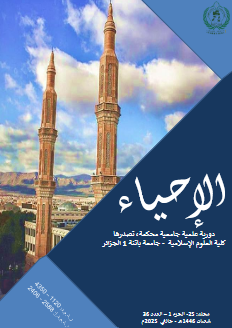The semantic development of the term postcolonialism and its relationship to the narrative discourse in Algeria (selected models of the crisis novel)
DOI:
https://doi.org/10.59791/ihy.v25i1.4793Keywords:
discerning reader, post-colonialism ideological post-coloniality, revealing critical readings, pragmaticsAbstract
Undoubtedly, the post-structuralist phase has undergone a fundamental change that has impacted the creative and critical fields, especially where intellectual and epistemological debates have intensified. Critical readings that reveal the text have become saturated with new tools, mechanisms, and methodologies that have their philosophical and deep ideological references, facilitating the process of interrogating the motives behind writing in all creative domains.
In this charged atmosphere of creation, imagination, and innovation, the creator is drawn into a moment of invention that invites the discerning reader to engage in processes of sharing and intermingling, thus working to fill gaps and rearranging the black on white. Here, the term post-colonialism or post-coloniality emerged, laden with procedural tools and practical foundations that help illuminate another important aspect of the creative text.
This term has transitioned into the realm of creativity and imagination, entering the Arabic language lexicon and its pragmatic dictionary to serve as another tool for revisiting history, invoking the unsaid, and exposing the implicit and hidden.
Downloads
Published
How to Cite
Issue
Section
License

This work is licensed under a Creative Commons Attribution-NonCommercial-NoDerivatives 4.0 International License.






